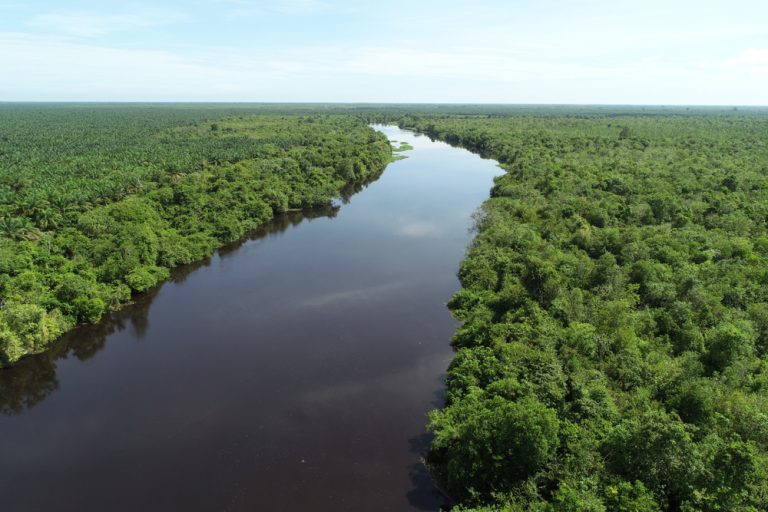Jakarta – A new report, co-authored by organizations such as Earth Insight, Auriga Nusantara, and Forest Watch Indonesia, highlighted the growing risks to Southeast Asia’s tropical forests as the wood-to-energy industry booms, the group said in a statement on Thursday, October 10.
Released during the ASEAN Summit, the study titled ‘Unheeded Warnings: Forest Biomass Threats to Tropical Forests in Indonesia and Southeast Asia’ warns of significant deforestation and environmental degradation driven by energy policies in Indonesia, Japan, and South Korea. These policies, which promote wood biomass as a “false climate solution,” threaten over 10 million hectares of pristine forests in Indonesia alone, equivalent to over eight million FIFA football fields.
The report reveals that these countries’ reliance on wood chips and pellets for energy puts massive pressure on biodiversity hotspots. With over 127 Key Biodiversity Areas (KBAs) at risk, including 400,000 hectares of critical orangutan habitat, the consequences could devastate ecosystems and local communities.
Field investigations in Gorontalo have already recorded alarming deforestation, with over 1,000 hectares of primary forest cleared for wood pellet exports to Japan and South Korea last year. The report details how local communities raise concerns about the widespread environmental and social damage caused by these activities.
Indonesia’s energy transition plan, which aims to generate 19.7 TWh of power from woody biomass by 2025, is central to the problem. More than 60% of this energy is expected to come from burning wood and coal, with forest concessions designated as ‘energy plantations’ projected to supply the bulk of the biomass. This policy could lead to industrial-scale deforestation, with estimates suggesting up to 2.1 million hectares of forest loss annually.

International demand, particularly from Japan and South Korea, exacerbates the situation. By 2021, these two nations accounted for over 99% of Indonesia’s wood pellet exports, spurred by subsidies that have rapidly expanded production across Southeast Asia. South Korea, for instance, increased its wood pellet imports from 20,000 tonnes in 2012 to 330,000 tonnes by 2021. Japan is forecasted to become the largest global consumer of wood pellets, further intensifying the pressure on forests.
Experts argue that burning wood for energy is far from the sustainable solution it claims to be. Biomass energy plants emit up to 60% more CO2 per megawatt-hour than modern coal plants. Moreover, the carbon debt—the time it takes for regrowth to compensate for emissions—can take between 40 and 900 years, depending on the forest type.
Amid growing alarm, environmental advocates are calling for a shift towards truly renewable energy sources like wind, solar, and tidal power. Timer Manurung, Executive Director of Auriga Nusantara, emphasized that Indonesia’s biomass plantations could severely damage critical ecosystems and exacerbate climate challenges. “Japan and South Korea are driving the expansion of biomass plantations, while Indonesia’s co-firing policy could increase woody biomass consumption by 8,400%, posing a massive threat to our forests and local communities,” he said.
Tyson Miller, Executive Director of Earth Insight, urged Southeast Asian governments to rethink their reliance on biomass. “Pursuing biomass as a solution will increase greenhouse gas emissions and undermine nature-based solutions needed to address the climate crisis,” he warned.
As global demand for renewable energy grows, the challenge remains in choosing solutions that protect, rather than jeopardize, the planet’s forests and the communities that rely on them. (nsh)













